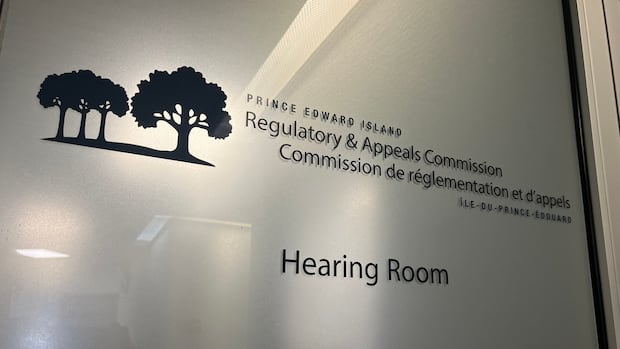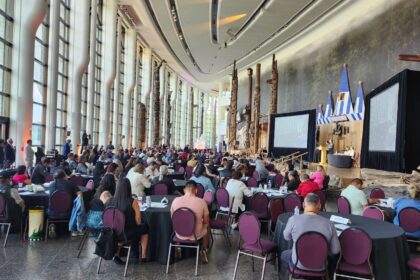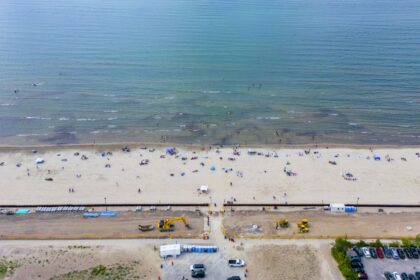PEIThe Director of Residential Tenancy has set the maximum Annual Allowable Rent Increase as two per cent on rental units for 2026.Residential Tenancy Office report found that landlords are ‘struggling’ to keep up with operation costsJenna Banfield · CBC News · Posted: Sep 22, 2025 6:43 PM EDT | Last Updated: 3 hours agoP.E.I.’s maximum allowable rent increase set at 2% for 2026 Rent could be going up again in the new year. The Residential Tenancy Office approved a 2 per cent increase, starting on Jan. 1. But that increase isn’t sitting well with tenants or landlords. CBC’s Wayne Thibodeau has more. Tenants on P.E.I. may see a bump in their rent in the new year, after the director of residential tenancy set the maximum allowable rent increase at two per cent for 2026.Under the Residential Tenancy Act, the annual allowable rent increase cannot be higher than three per cent.The changes apply to all rental properties, heated or unheated, including mobile home sites, and come into effect Jan. 1, 2026. Rent on P.E.I. can be raised every 12 months, and landlords are required to provide three months written notice to tenants.Landlords ‘struggling’ with increasing costsThe Residential Tenancy Office is part of the Island Regulatory and Appeals Commission, or IRAC. It is required to review recommendations from landlords and tenants, as well as consider the province’s Consumer Price Index (CPI), before making a decision on allowable rent increases. In her report, director Jennifer Perry said that much of the feedback from landlords centred on increasing operation costs and expenses including property taxes, electricity, water and heating oil. Many said they’ve been unable to address necessary repairs for properties as a result.The report said that since 2020, allowable rent increases have been below the CPI All-Items percentage change. Perry found that landlords experienced a 2.3 per cent increase in costs this year, but is only allowing a two percent increase.”This supports the representations of landlords that they are struggling to keep up with the rising costs associated with operating a rental unit,” the report says. ‘Nobody has to invest their money in properties’ But Corey Pater, a volunteer with P.E.I. Fight for Affordable Housing, says he’s not worried about how much profit landlords are making.”I think struggling is a ridiculous way to put it. Nobody has to invest their money in properties. It’s not something that you’re required to do and it’s not something you have a right to go successfully.”I think that if what they’re saying is that they can’t afford to provide housing that renters can afford, then we need to look away from landlords as to where we’re getting our housing from,” Pater said.Cory Pater, a volunteer with P.E.I. Fight for Affordable Housing, said that for some tenants, any increase in rent is not affordable. (Wayne Thibodeau/CBC)Pater says any increase in rent is too much for some tenants.”Especially for the most vulnerable, for the least wealthy tenants in the community, it’s going to be the hardest because if they’re priced out of their apartments, they’re the ones who have the hardest time finding new housing.”Lack of vacant unitsPerry’s report says feedback from tenants was also consistent, raising issues of affordability and a lack of vacant rental units. Tenants also expressed that rent should not increase beyond what is actually needed to maintain rental properties, and that the quality of their living space is decreasing despite being expected to pay more rent.Liberal MLA Gord McNeilly said finding a balance in these situations is hard, and that he feels the residential tenancy director tried to find a ‘happy medium.’McNeilly said the residential tenancy director tried to find a ‘happy medium,’ which he said can be difficult for this type of situation. (Wayne Thibodeau/CBC)He also pointed out the lack of rental vacancy, which Perry also mentions in her report — saying that the vacancy rate on the Island is less than one per cent, the lowest in the country. “We do have rental vacancy problems in Prince Edward Island,” said McNeilly. “With a 0.8 per cent vacancy rate in Prince Edward Island, it’s hard to find a place to rent and to live.”He adds that he feels the government has not been building enough affordable rental units, or maintaining the ones that do exist.”Government has dropped the ball in many different fronts on this,” McNeilly said. “I hope they can build at a quicker pace.”ABOUT THE AUTHORJenna Banfield is an associate producer for CBC Prince Edward Island. She can be reached at jenna.banfield@cbc.caWith files from Wayne Thibodeau
P.E.I.’s allowable rent increase set at 2% for 2026











